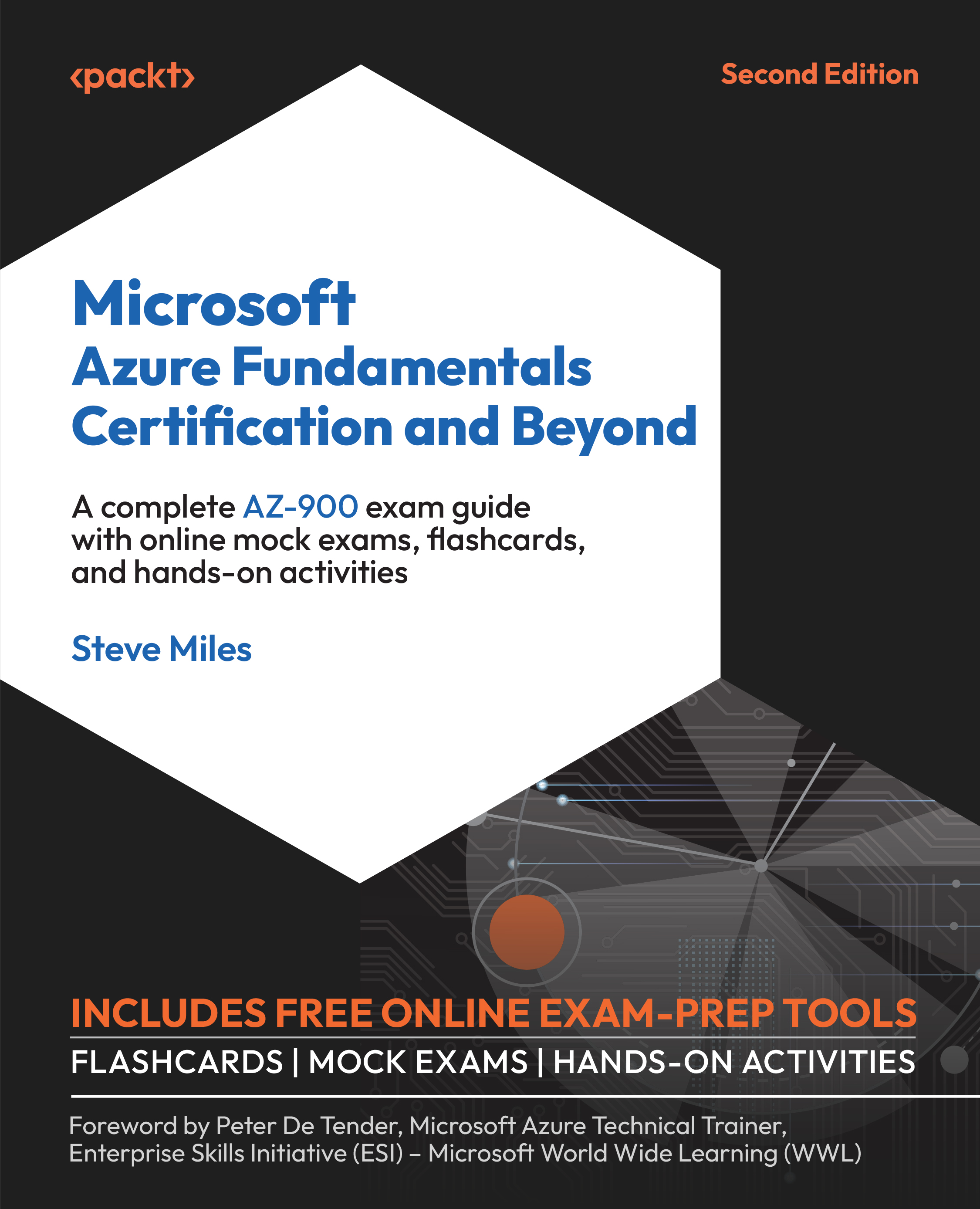Zero Trust
You need to think beyond traditional network perimeter-based security and adopt a holistic approach to security. An important concept to consider in a security strategy is Zero Trust, which uses the approach of never trust and always verify.
Zero Trust is not a product, service, or solution but a wider-thinking security strategy and framework to be adopted. It works on the notion of ensuring compliance and securing access to the resource and no longer the location or network the resource is on. You must not assume trust because of the resource’s network or location.
The Zero Trust framework is built upon the following foundational principles:
- Assume breach: This principle assumes that systems have already been compromised and infiltrated by an attacker; they are already inside your systems. The impact can be mitigated by requiring the use of DiD measures with segmented access to prevent lateral movement.
- Verify explicitly: Regardless of the scenario...
































































